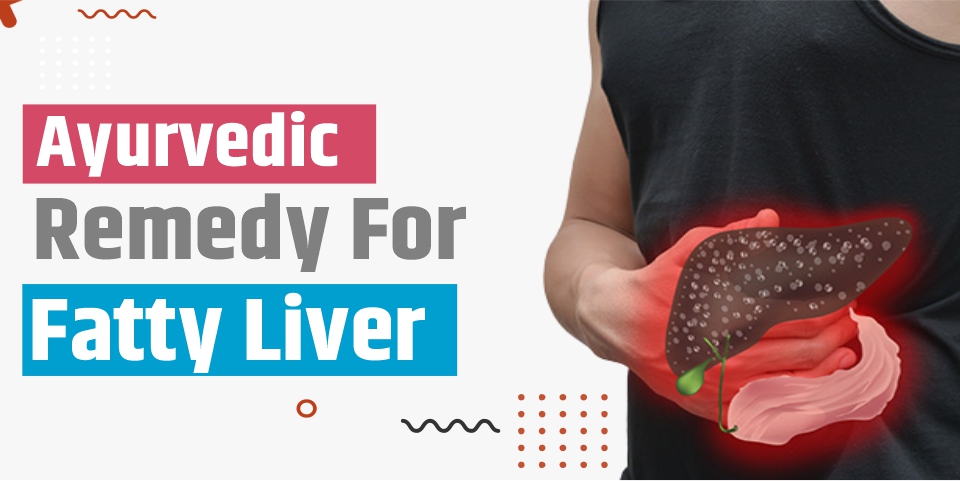
HOME REMEDIES FOR FATTY LIVER
- 29 Jan, 2022
- Posted by admin
- 0 Comment(s)
The liver is your body’s workhorse. Liver executions many functions in which are transforming food to fuel, filtering baleful toxins, making proteins that aid blood clot, and producing bile. Unluckily, this powerful organ is susceptible to a potentially dangerous condition named fatty liver disease.
Fatty liver disease occurs when fat accumulated in the liver. This condition can be caused by consuming more alcohol, but people who do not drink alcohol can also get the disease. When fatty liver disease is caused by factors other than alcohol, it is termed nonalcoholic fatty liver disease (NAFLD).
Causes of Non-Alcoholic Fatty Liver
- Diet that is high in processed inflammatory fats, sugar and carbohydrates.
- Obesity
- Medical conditions such as high blood cholesterol, diabetes and hepatitis.
- Certain medications that impact the liver and more iron in the liver.
Symptoms of Fatty Liver
- Fatty liver can be silent killer because the progression of the disease is very gradual. Most patient experience little to no symptoms. Leaving them unaware of their conditions until it is critical.
- When inflammation of the liver happens, patients can experience feeling of exhaustion.
- About 10-20% of fatty liver patients develop hepatitis which increases the risk of cirrhosis and liver cancer.
Diagnosis
- Ultrasonography (USG)
- Medical history review and liver enzyme examination
- Liver biopsy for pathology
- Other tests such as X-ray, MRI and fibro scan to assess the hardness of the liver and the presence of fatty liver
Risk factors
- Obesity- waist circumference larger than 40 inches in men /35 inches in women
- Triglyceride level- over 150 mg/dL
- High blood sugar- level over 100 mg/dL
- Low level of high density lipoprotein or HDL- HDL cholesterol below 40 mg/dL for men/50 mg/dL for women
- High blood cholesterol
Natural Home Remedies for Fatty Liver
TRY THE MEDITERRANEAN DIET
- Mediterranean diets can even aid fend off liver fat accumulation without causing weight loss.
- Also, a Mediterranean diet is beneficial for preventing conditions related to fatty liver, like high blood pressure, high cholesterol, and diabetes.
DRINK COFFEE
- The liver benefits from drinking coffee.
- It aids cops up inflammation by stimulating the production of liver enzymes.
- Study suggests regular coffee consumption alleviates liver damage in people with fatty liver.
- It seems that drinking two to three cups of coffee per day lowers the risk of liver disease the best.
- As black coffee contains no added fat or sugar, it is the good option.
STAY PHYSICALLY ACTIVE
- Fatty liver is usually caused by a sedentary lifestyle. Additionally, inactivity is associated with other conditions similar to fatty liver, including cardiovascular disease, type 2 diabete and obesity.
- Maintaining an active lifestyle is crucial if you are facing fatty liver.
- At least 150 minutes of moderate exercise each week is a great goal.
TARGET HIGH CHOLESTEROL
- Study reveals fatty liver can interrupt the body’s ability to control cholesterol on its own. Heart disease is therefore likely to worsen NAFLD.
- To manage your cholesterol and treat nonalcoholic fatty confine intake of certain types of fats. Fats to limit include:
- Saturated fats
- Trans fats
LIMIT FOODS WITH ADDED SUGARS
- Fatty Liver has been associated to dietary sugars like fructose and sucrose.
- Study was reported that these sugars can lead to fat accumulation in the liver over the long term.
LOSE EXCESS WEIGHT
- People suffering from obesity and nonalcoholic fatty liver (NAFLD) lose between 3 and 5 % of their body weight in order to alleviate their liver fat accumulation.
- Other symptoms of fatty liver, such as swelling, fibrosis, and scarring, can also be improved by losing between 8 and 10 % of body weight
- Taking small steps toward your aim will help you lose weight and keep it off. Extreme diets and fasting are usually unsustainable and are difficult on the liver.
- Before you start any weight loss schedule, you should discuss with your physician to see what the good plan is for you. An eating plan designed by a dietitian can aid you achieve your weight loss goals and make healthy food choices.
The Best Natural Herbs for Fatty Liver
TURMERIC (CURCUMA LONGA):
This traditional herb is loaded with antioxidants and this is a reason why it is very effective home remedy for treating fatty liver disease. Turmeric improves the ability of body to digest fats so they will not store in the liver. In addition, this natural herb can aid in the liver detoxification process.
AMALAKI (EMBLICA OFFICINALIS):
Amalaki is also known as Indian gooseberry. This is an emphatic home remedy for the natural cure of fatty liver. It is high in antioxidant Vitamin C which can aid to keep the function of the liver at its optimal levels. This amazing fruit can help you to flush out the harmful toxins from your liver.
LEMON (CITRUS LIMON):
This citric fruit is abundant in Vitamin C. This antioxidant aids the liver to mass produce enzymes which are named glutathione. These enzymes can neutralize toxins and lemon can also aid the liver with detoxification.
GREEN TEA (CAMELLIA SINENSIS):
This herbal tea is rich with high – density catechins and it can enhance the liver function and fat infiltration in people with nonalcoholic fatty liver disease. This tea can help to block the amount of fat accumulated in the liver and it can magnify the liver function.
YASHTHIMADHU (GLYCYRRHIZA GLABRA):
You can employ licorice as your natural treatment for curing liver problems such as nonalcoholic liver disease. Study reveals licorice root extract can help to reduce transaminase activities of enzymes which are named ALT (alanine aminotransferase) and AST (aspartate aminotransferase) in nonalcoholic fatty liver disease. In addition, it can prevent liver damage due to toxins and heavy metals.
DANDELION (TARAXACUM OFFICINALE):
This natural cure acts as a potent liver tonic. That’s why it can be employed as the treatment for fatty liver disease. Also it can help to detoxify and metabolize fat which is stored in the liver and it can promote liver function.
